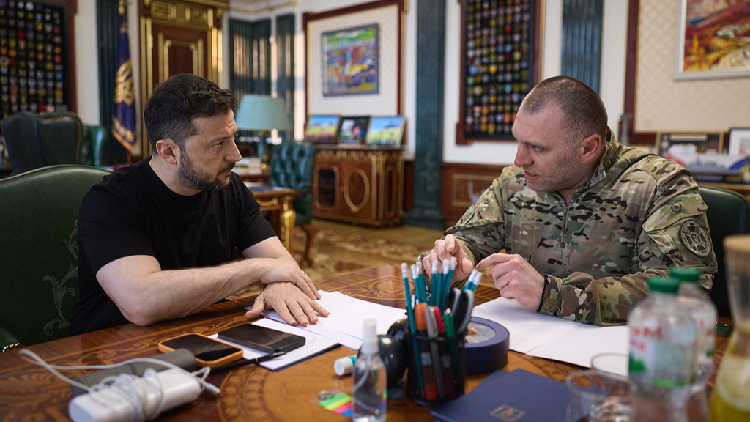Russia and Ukraine Prepare for Second Round of Peace Talks Amid Escalating Conflict
Escalating tensions as Ukraine targets Russian bombers just before peace talks commence

The diplomatic landscape between Russia and Ukraine faces a pivotal moment as delegations from both nations prepare to convene for a second round of peace talks in Istanbul on Monday at 1 p.m. This high-stakes meeting, announced by the Turkish Ministry of Foreign Affairs, is set to take place at the historic Ciragan Palace and comes amid one of the most volatile escalations seen in recent months.
Ahead of the negotiations, Ukraine has outlined a comprehensive proposal calling for an initial 30-day ceasefire, a full prisoner exchange, and the repatriation of Ukrainian children taken to Russian-held territories. The proposal ultimately envisions a face-to-face summit between President Volodymyr Zelenskyy and Russian President Vladimir Putin—an encounter viewed by Kyiv as vital for resolving the conflict’s core issues. In preparation, Ukraine has expanded its delegation to 14 members, bringing together top officials from military, human rights, and legal sectors, under the leadership of Defense Minister Rustem Umerov.
Russia, for its part, is entering the discussions with a draft memorandum and additional proposals aimed at achieving a ceasefire, while also emphasizing issues such as navigation safety in the Black Sea. The Russian delegation, headed once more by Presidential Aide Vladimir Medinsky, remains unchanged for this latest attempt at diplomacy. Kremlin officials have expressed cautious optimism that real progress can be made, but have underscored that direct talks between national leaders will only follow meaningful advancements in the ongoing negotiations.
The atmosphere leading into the talks, however, has been marred by dramatic escalations on the battlefield. On the eve of the Istanbul meeting, critical infrastructure was targeted as two major bridge collapses disrupted transportation in Russia’s Bryansk and Kursk regions. The incidents left several dead and dozens injured, with a passenger train derailment impacting hundreds traveling to Moscow. Russian authorities have launched investigations, labeling the events as acts of terrorism, while Ukrainian officials dismissed them as potential "false flag" operations intended to sway international sentiment.
Simultaneously, Ukraine’s Defense Intelligence revealed sabotage efforts against Russian military logistics, including the destruction of a supply train in southern Zaporizhzhia Oblast. Most notably, Ukraine’s Security Service claimed responsibility for a daring attack against strategic Russian air bases far beyond the front lines—allegedly damaging or destroying over 40 nuclear-capable long-range bombers in Siberia. If confirmed, these strikes would represent a significant escalation in the conflict and demonstrate Ukraine’s growing capacity for deep-penetration operations.
Russian sources have downplayed the scale of the damage, suggesting only limited losses at their Siberian airfields. Meanwhile, Moscow responded militarily with a missile strike on a Ukrainian army training facility, reportedly causing substantial casualties among Ukrainian forces. The cycle of strikes and counterstrikes in the hours before the talks underscores the tense and fragile context in which negotiators must operate.
As both sides prepare to sit across the table, experts warn that the prospects for a breakthrough remain uncertain. The key sticking point continues to be the terms of a ceasefire, with Russia seeking to tie any agreement to broader political conditions—including Ukraine’s neutrality, assurances on NATO’s future actions, and the lifting of Western sanctions. Ukraine, conversely, insists on an unconditional, immediate cessation of hostilities, hoping to gain urgent relief for its embattled population and military.
Despite mounting international expectations for progress, analysts caution that deep mutual mistrust persists between Moscow and Kyiv. The next round of talks in Istanbul may open avenues for further dialogue, but with both sides entrenched, the road toward sustainable peace is expected to be long and arduous.




